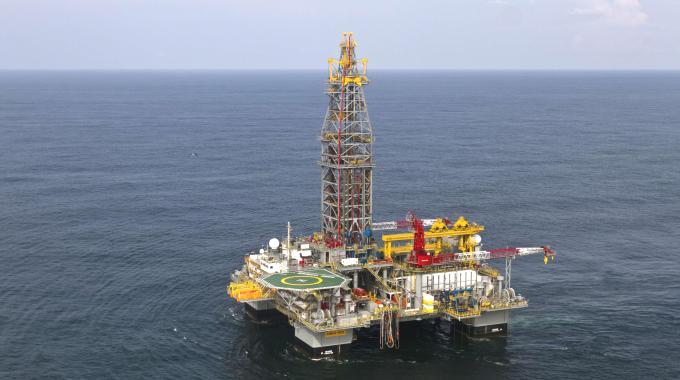What the EU Court said on the Puglia-Global Petroleum case

The Puglia Region had opposed Global Petroleum's four oil concessions in the Adriatic. The European Court has ruled that there is no limit to permits, even in nearby areas
The Court of Justice of the European Union has ruled that a Member State "is not obliged to limit the surface area in which a particular operator is authorized to carry out prospecting, research and production of hydrocarbons, such as oil and natural gas".
The conclusions of Gerard Hogan, Advocate General of the Court, refer to case C-110/20, or to the order of the Puglia Region against the Australian company Global Petroleum and the Italian authorities, which authorized the exploration of hydrocarbons in some nearby areas in the Adriatic Sea, off the coast of Puglia.
THE STORY
In 2013, Global Petroleum submitted four applications to the Italian authorities to obtain as many hydrocarbon exploration permits in adjacent areas in the Adriatic Sea. Each of these requests concerned an area with a surface of just under 750 square kilometers: this is the maximum limit allowed by Italian legislation for the areas to be allocated to the search for fossil sources.
In 2016 and 2017, then, the Italian authorities declared the environmental compatibility of the four Global Petroleum projects.
The Puglia Region claims that the Italian legislation – which sets a maximum limit of 750 km2 per area to be used for hydrocarbon exploration – has been circumvented, because the four adjacent permits would have allowed Global Petroleum to exploit a total area of about 3000 kilometers. squares. According to the Region, the limit of 750 km2 should be applied both to the single permit and to the single operator.
WHAT IS THE QUESTION
The whole question consists in establishing whether the European Directive 94/22 – the one relating to the conditions for the granting of authorizations for the exploration of hydrocarbons – obliges a state of the European Union to set a maximum limit on the areas in which an operator is entitled to carry out these activities.
WHAT THE EUROPEAN COURT HAS DECIDED
The Court of Justice of the European Union replied in the negative.
Directive 94/22, that is, does not prohibit national legislation (the Italian one, in this case) from issuing more permits, even in contiguous areas, to the same operator, even if these permits cover a larger overall area than the limits set. by the legislation for a single permit (the 750 km2 contested by the Puglia Region).
The Court specifies that the right to define which areas of the territory are eligible for hydrocarbon exploration activities belongs to the member states. The European directive speaks of an "optimal area", but it does not establish geographical areas in absolute figures and does not even require the denial of authorizations for contiguous areas (as in the case of Global Petroleum in the Adriatic).
COMPETITION CLARIFICATIONS
In his conclusions, Advocate General Hogan stresses, however, that the European directive "imposes transparency and non-discrimination in accessing and operating E&P [hydrocarbon exploration, ed ] activities, in order to promote competition and strengthen integration of the internal energy market "
He therefore recalls that the directive aims to guarantee competition for authorizations between "the largest possible number of suitable operators", "whether these operators are public or private entities, regardless of their nationality, in order to promote the best possible exploitation of resources of hydrocarbons located in the Union ".
THE DOMINANT POSITION
Furthermore, the directive does not aim to prevent the creation of a dominant position. According to Hogan, that is, an operator who already holds a permit for research activities in a certain area may be in a better position to obtain other authorizations in nearby areas.
This would put the operator in a dominant position, but this position would not constitute a violation of European rules "since this position would be achieved as a result of performance on the market and not as a result of a concentration".
THE ENVIRONMENTAL IMPACT
Finally, the Advocate General wished to recall that Article 11 of the Treaty on the Functioning of the European Union
provides for the integration of environmental protection criteria "into the policies and actions of the Union, particularly with a view to promoting sustainable development".
In concrete terms, this means that the national authorities, when they find themselves having to carry out an environmental impact assessment, "must take into account the cumulative effect of the projects, in order to avoid that EU environmental legislation is circumvented through the splitting of several projects which, considered together, can have a significant environmental impact ".
This is a machine translation from Italian language of a post published on Start Magazine at the URL https://www.startmag.it/energia/corte-di-giustizia-unione-europea-conclusioni-puglia-global-petroleum/ on Thu, 24 Jun 2021 13:13:35 +0000.
